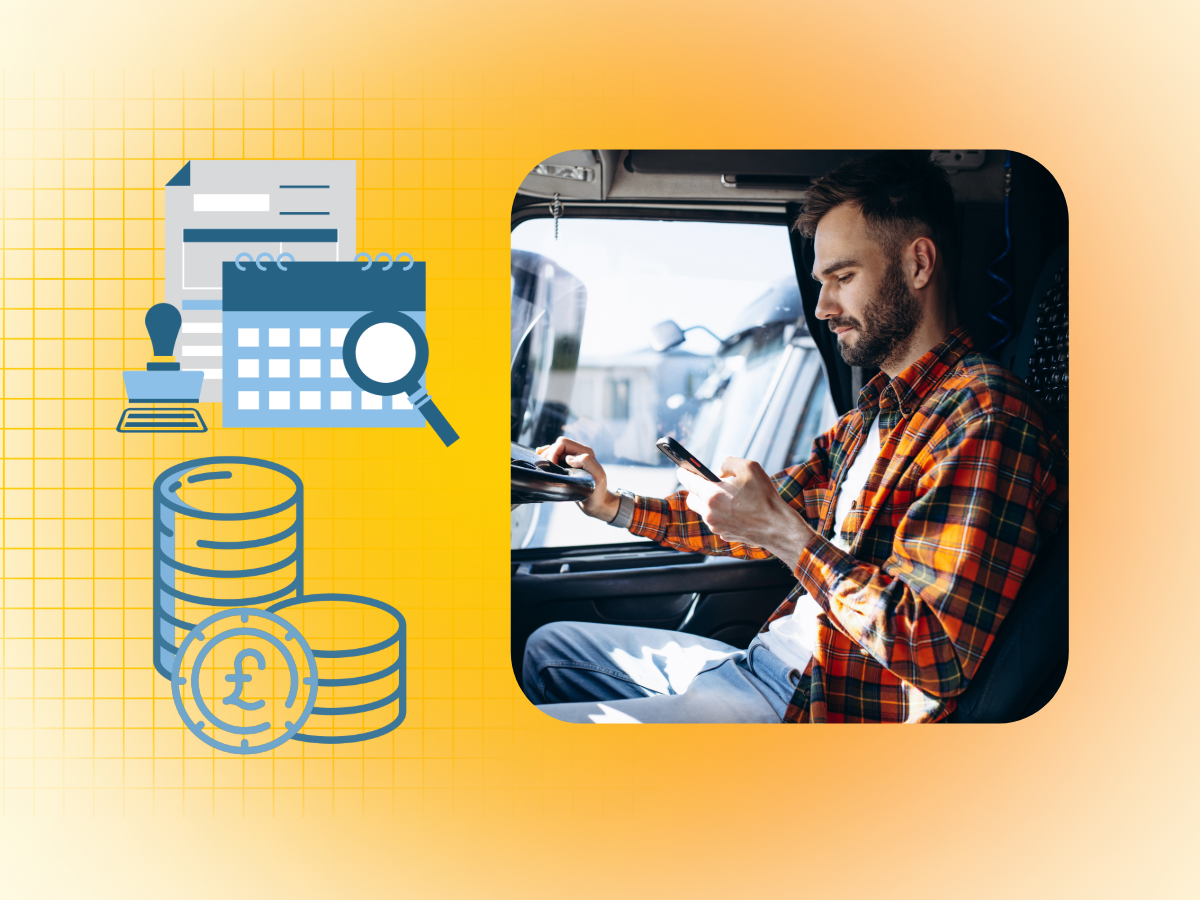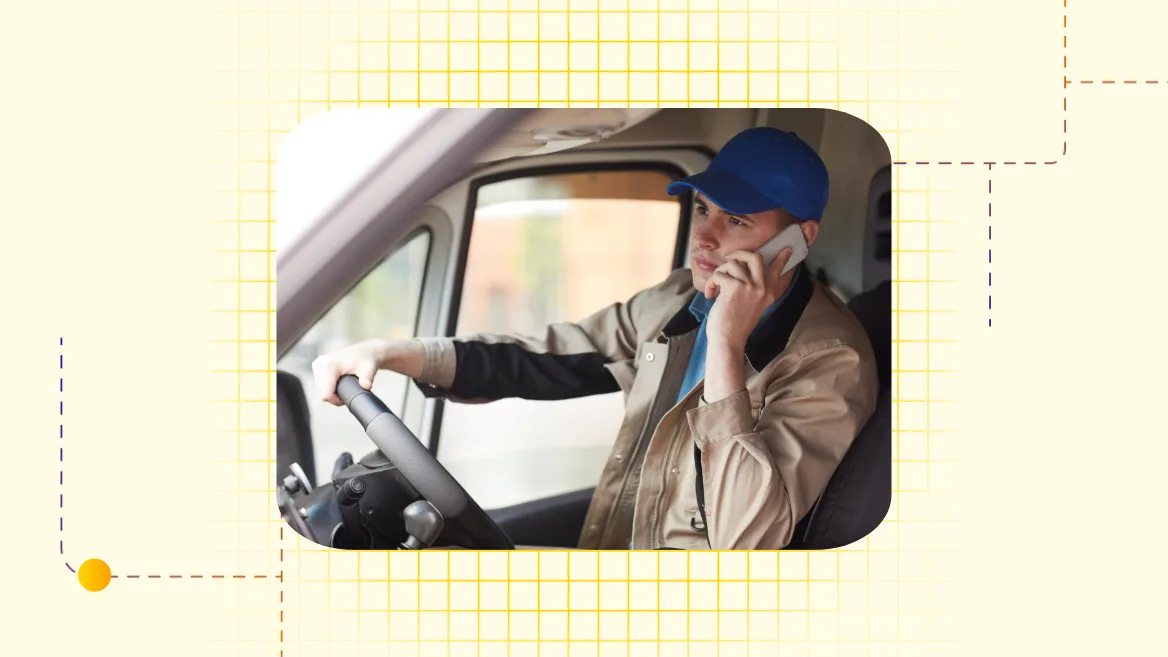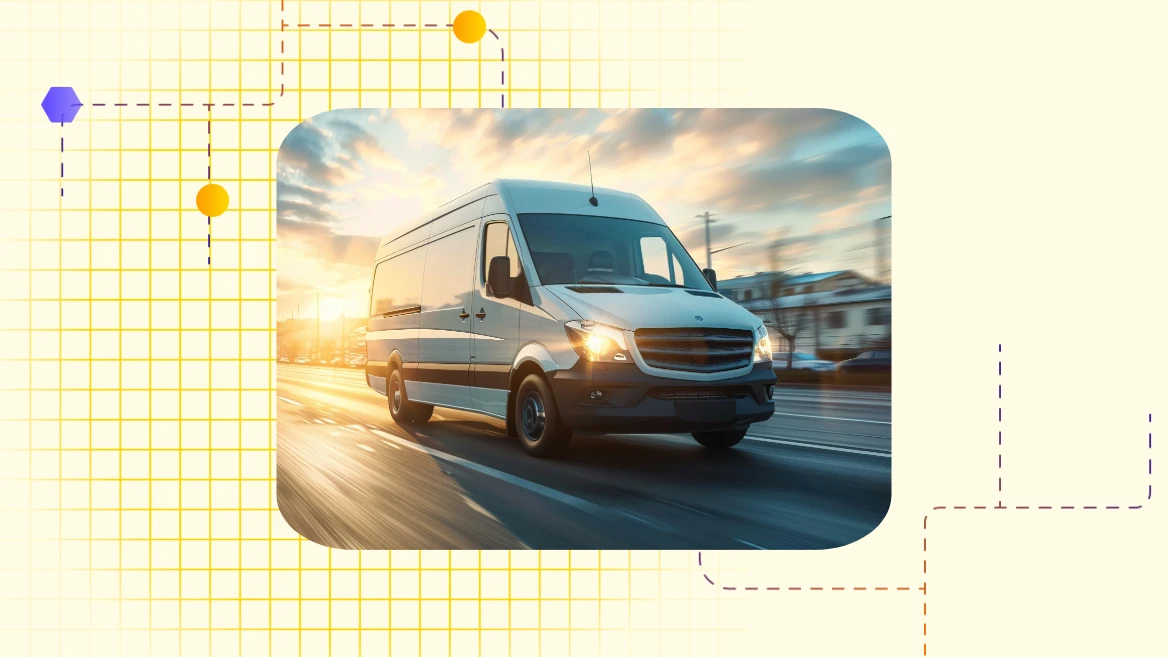Starting out as a courier comes with many responsibilities, and one of the most important ones is understanding taxes, especially your VAT (Value Added Tax).
It can be a bit daunting at first, but getting a good grip on VAT is important for running your business smoothly and keeping costs in check.
In this guide, we’ll explain what VAT is, when you should register for it, and how the VAT returns process works for couriers.
What we’ll cover
Get access to 19,000+ courier loads a day on Courier Exchange
Be your own boss. Set your own hours. Make your own money.
What is VAT?
VAT, or Value Added Tax, is a tax applied to most goods and services in the UK, from soft drinks to your home electric bill, and is typically set at 20%.
It’s an indirect tax, meaning it’s collected by businesses on behalf of the government.
How it applies to couriers
As an independent courier company, you’ll likely pay VAT on several essential business expenses.
This could include fuel, vehicle maintenance, PPE, freight exchange memberships, and even office supplies if you have a home office.
If you’re registered with HMRC, you can claim back the tax you’ve paid on these items, reducing your overall expenses.
When should you register for VAT?
If you turn over £90,000 in a 12-month period, you’re legally required to register for Value-Added Tax.
But even if you’re just starting out and your earnings are below the threshold, it might still make sense to register for it.
If you regularly pay VAT on business expenses, such as fuel or equipment, registering could allow you to reclaim the tax, potentially saving you money.
Additionally, being VAT-registered can give your business a more professional image, which might be beneficial when dealing with larger shippers who expect to work with VAT-registered companies.
On the other hand, registering for it could complicate things if your business turnover is low.
You’ll have to add tax when you price your courier jobs, which could make your prices less competitive, especially if your customers are individuals or small businesses that can’t reclaim the tax themselves.
For smaller courier businesses, this extra burden might outweigh the benefits of reclaiming taxes on expenses.
How to register for VAT as a courier
Registering for VAT is a straightforward process and can be done online.
- Gather your details: You’ll need your National Insurance number, business information (name, address, start date), bank account details, expected turnover, and information about any businesses you’ve owned recently.
- Register online: Visit the HMRC website, sign in or create a Government Gateway account, and fill in your business details. Submit your application.
- Choose your VAT scheme: Most courier owner-drivers will use the standard VAT scheme. However, the Flat Rate Scheme might be simpler if your turnover is under £150,000.
- Receive your VAT certificate: HMRC will send you a VAT registration certificate with your tax number, the date to start charging your customers, and your first return deadline.
- Start keeping records: From the registration date, keep detailed records of Value-Added Tax on your sales and expenses. These will be essential for your returns.
How to claim your VAT back
Once you’re VAT-registered, you’ll need to submit regular returns to HMRC, usually every three months.
This process might sound complicated, but with a bit of organisation, it’s quite manageable.
To complete your return, you’ll need to keep detailed records of all your sales and expenses.
You’ll calculate how much tax you owe on your sales and subtract any Value-Added Tax you can reclaim on your expenses. The difference is what you’ll pay to HMRC.
If the amount of tax you’ve paid on expenses is more than what you owe on sales, you can claim a refund.
Common VAT claims for couriers
As a courier, you’ll have several regular expenses that are subject to Value-Added Tax and can be reclaimed.
Fuel is one of the biggest expenses you’ll face, and claiming back the VAT on this can significantly reduce your costs. But fuel isn’t the only expense you can claim tax on—there are several others that can help you save money.
Here’s a list of common expenses that couriers can claim VAT back on:
- Fuel costs: The VAT on all your fuel purchases can be reclaimed, which is often one of the largest savings for couriers. This is much easier if you have a fuel card for couriers.
- Vehicle purchase and maintenance: Whether you’ve bought a new courier van or need routine servicing, tyre replacements, or unexpected repairs, you can claim back on all these purchases and services.
- Office supplies: From paper and pens to more expensive items like computers or printers, all your office-related purchases can be reclaimed.
- Tools and equipment: Any tools or equipment you purchase for your business, such as GPS devices, mobile phones, load restraints like ratchet straps, and other loading equipment can also be claimed for.
- Uniforms and workwear: If you purchase uniforms or PPE specifically for your job, you can claim back on these items.
- Advertising and marketing: The VAT on costs related to promoting your business, such as flyers, business cards, online ads and even your Courier Exchange subscription can also be reclaimed.
- Telecommunications: VAT on your mobile phone and internet bills, if used for business purposes, is reclaimable.
Unfortunately, you can’t claim on your vehicle insurance or courier insurance, as they’re exempt from VAT.
Consider using an accountant
While you can handle your tax returns on your own, many couriers find it helpful to use an accountant.
They’ll take care of the paperwork and help you avoid common mistakes that could lead to penalties. They can also give you advice on what you can and can’t claim, which can be a real help in making sure you’re getting all the Value-Added Tax back that you’re entitled to.
Example of courier VAT returns
To give you a clearer picture, let’s say you spent £15,000 on fuel, £5,000 on vehicle maintenance, and £2,000 on other supplies in the past year.
With VAT at 20%, that means you’ve paid £4,400 in VAT on these expenses alone.
If you’re registered, you can claim back that £4,400, reducing your overall business costs significantly.
On the other hand, if you weren’t VAT-registered you’d have to absorb these costs, which would eat into your profits. In this case, being registered could save you a considerable amount each year.
Look at it this way: by claiming your VAT back, you’ll earn 20% more per year!
Conclusion
While registering for Value-Added Tax is required by law if your turnover is over the £90,000 threshold, it can be worth it for newer businesses once you’ve started taking on regular courier jobs.
By reclaiming the tax on your expenses, you can lower your operating costs and potentially improve your bottom line. However, if your business is smaller, the extra admin might not be worth the hassle.
Whether you choose to register for VAT or not, staying on top of your finances is key to building a successful courier business. If you’re unsure about the process, speaking to an accountant can help you make the best decision for your situation.




